How to Hire the Best Grubhub Clone Developer
Create a powerful, customizable streaming solution with Miracuves’ Grubhub Clone, equipped with high-performance features and next-gen technology.
Thinking of launching your own on-demand food delivery platform like Grubhub? Great move it’s a thriving market with strong growth potential. But here’s the hard truth: the success of your app won’t just depend on the idea. It’ll depend on who builds it.
Hiring the right Grubhub clone developer is the most important decision you’ll make at this stage. You don’t just need coders — you need a partner who understands the technical complexity, the business logic, and the high expectations of today’s users. In this guide, we’ll walk you through the key things to look for when hiring the best Grubhub clone development company.
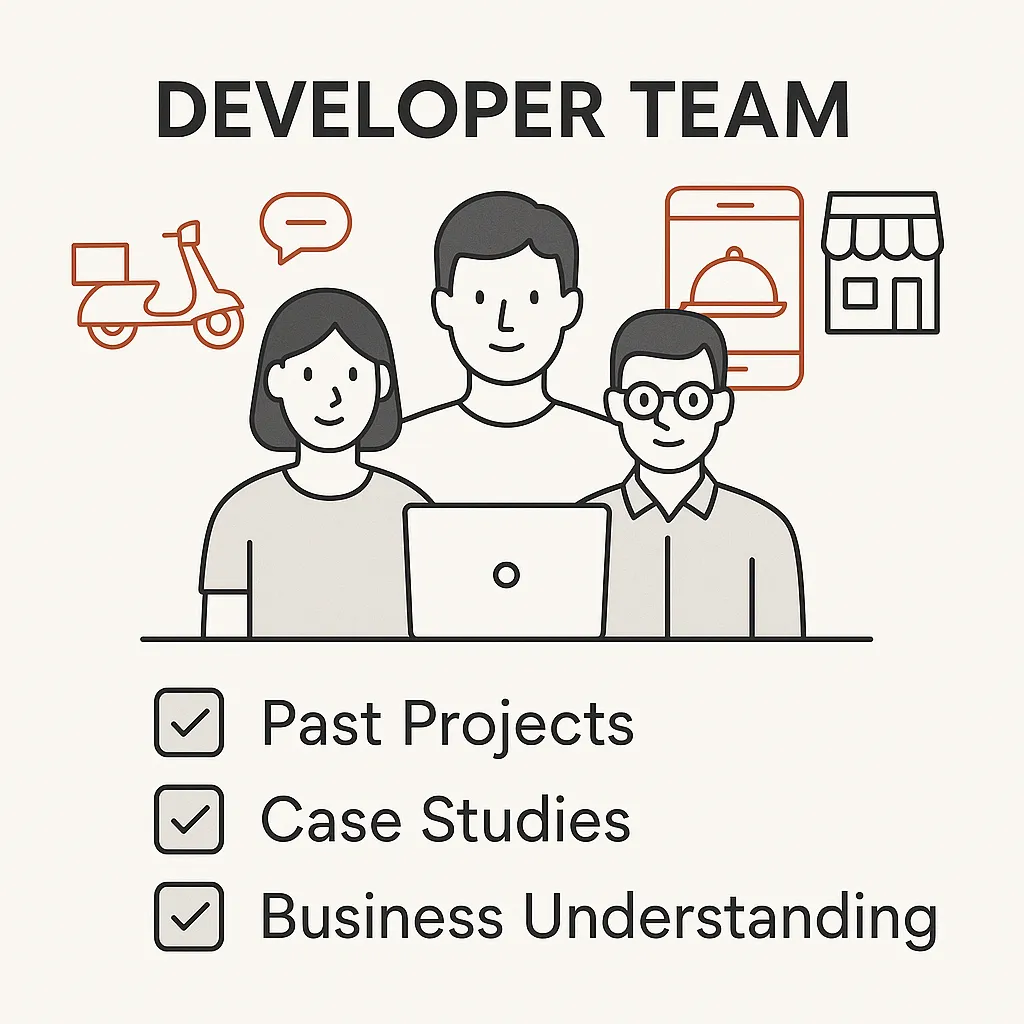
Look for Domain Expertise
Start by narrowing your search to companies with proven experience in food delivery app development. A team that has already built platforms like Grubhub, DoorDash, or Uber Eats will understand the unique demands of this space.
Here’s what to check for:
Past clone projects: Have they built food delivery apps or restaurant aggregator platforms before?
Case studies & portfolios: Look for detailed examples — especially those with real-time delivery tracking, restaurant dashboards, and driver management systems.
Business logic familiarity: Great developers won’t just talk features — they’ll grasp order lifecycle, commission models, surge pricing, and user retention tactics.
Domain knowledge saves you time, prevents rework, and increases the chances of a smoother launch.
Tech Stack & Scalability
Your food delivery app needs more than just a sleek front end — it needs a solid backend that can scale fast.
What to ask:
Modern tech stack: React Native or Flutter for the mobile app, Node.js or Laravel for backend, and scalable cloud hosting like AWS or Google Cloud.
Microservices architecture: Helps in modular development and faster feature rollouts.
Real-time systems: Push notifications, GPS tracking, and order updates must work instantly.
Security standards: Look for encryption, secure APIs, and compliance with data privacy norms.
This ensures your app won’t break under pressure — even with hundreds of concurrent users or peak-time order surges.
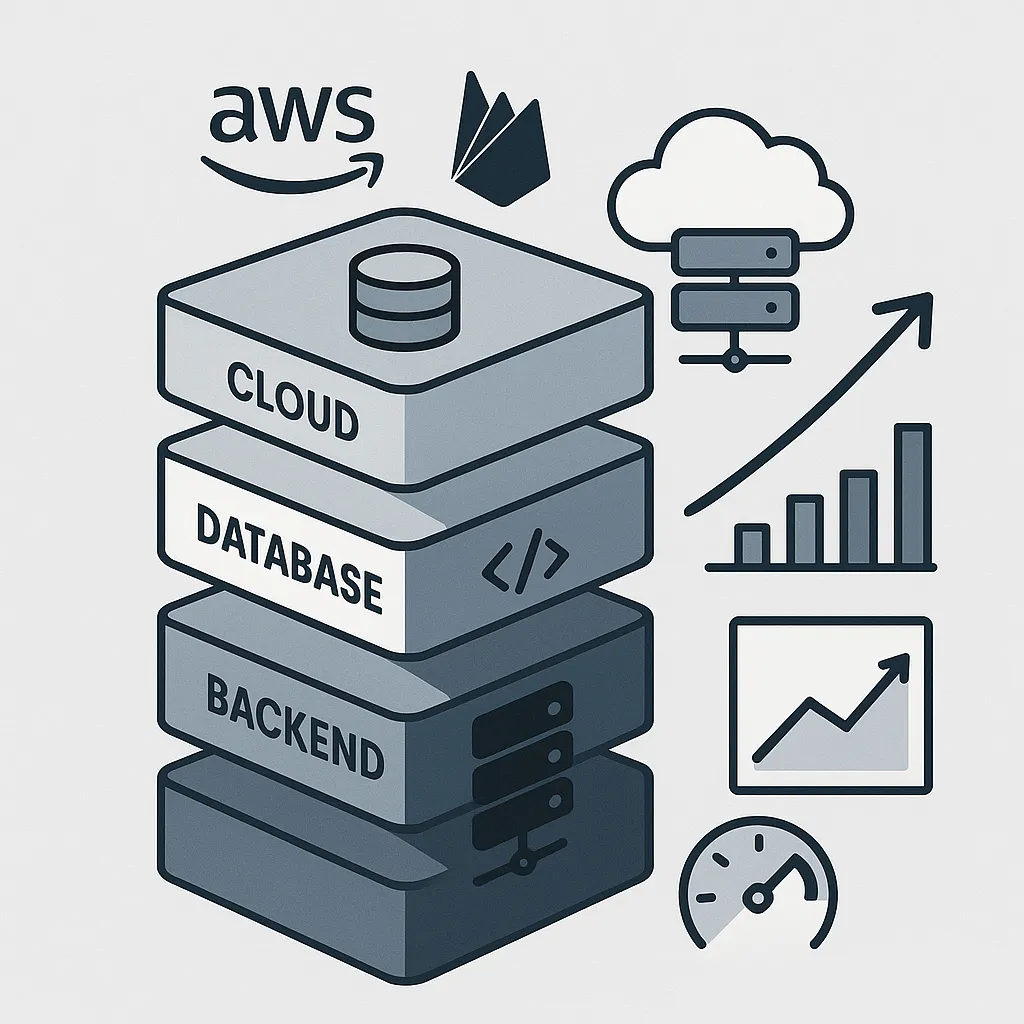
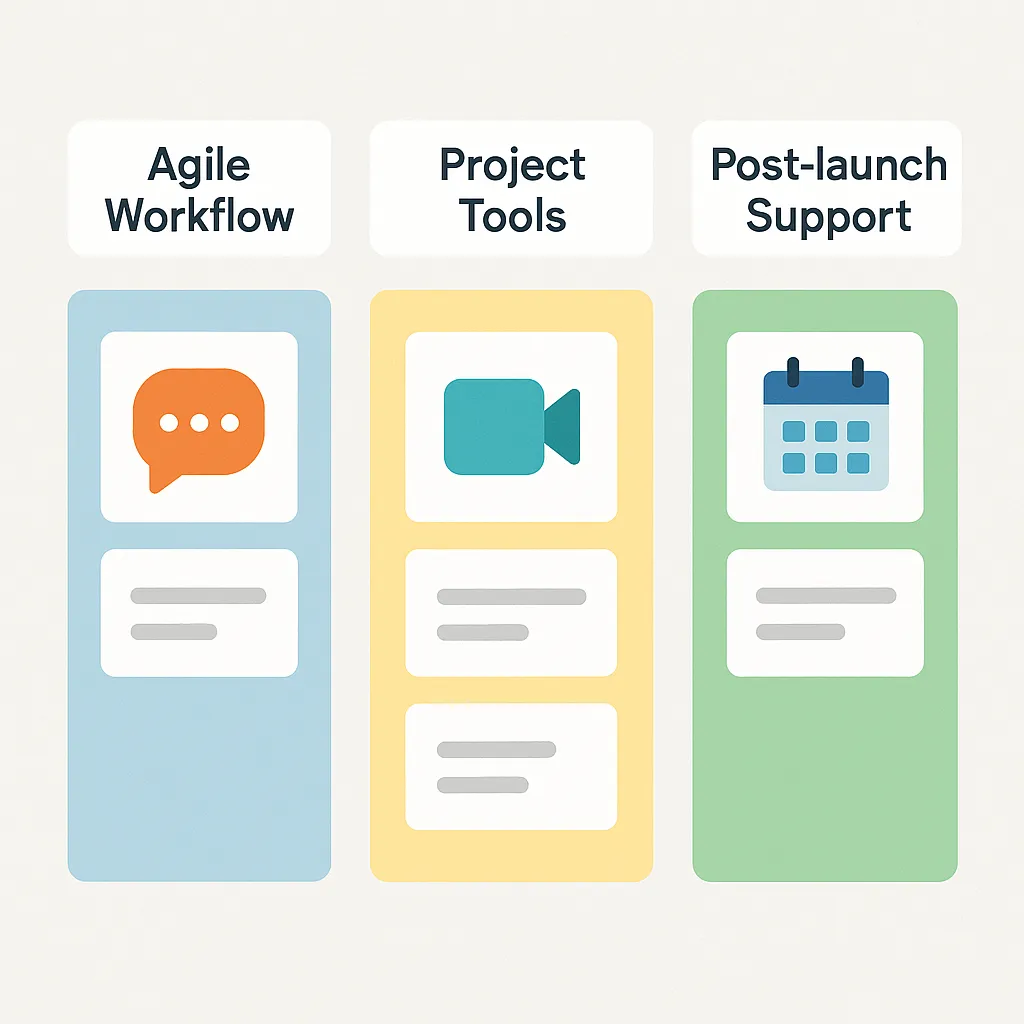
UI/UX Capabilities
In food delivery, experience is everything. A clunky checkout or confusing order status can kill your conversion rate.
Here’s what a strong Grubhub clone developer should offer:
User-centered design: Smooth onboarding, quick search, one-tap reorders, and smart filters.
Customization flexibility: You should be able to brand the app with your own identity — colors, fonts, icons, and more.
Role-based UI: Separate flows and dashboards for users, restaurants, and delivery drivers.
Responsive and mobile-first: The UI must work flawlessly across all screen sizes and bandwidths.
You’re not just building an app — you’re creating an ecosystem that users need to love from day one.
Communication & Workflow
Even a skilled team can fall short if communication isn’t clear. You need developers who collaborate like partners, not vendors.
Key things to check:
Project management tools: Do they use Jira, Trello, or Asana to keep tasks organized?
Agile methodology: Iterative updates, feedback loops, and weekly demos are a must.
Dedicated point of contact: Someone who’s always accessible and understands your business goals.
Post-launch support: Bug fixing, performance tuning, and new feature rollouts should be included.
A transparent workflow builds trust — and helps you launch on time with fewer surprises.
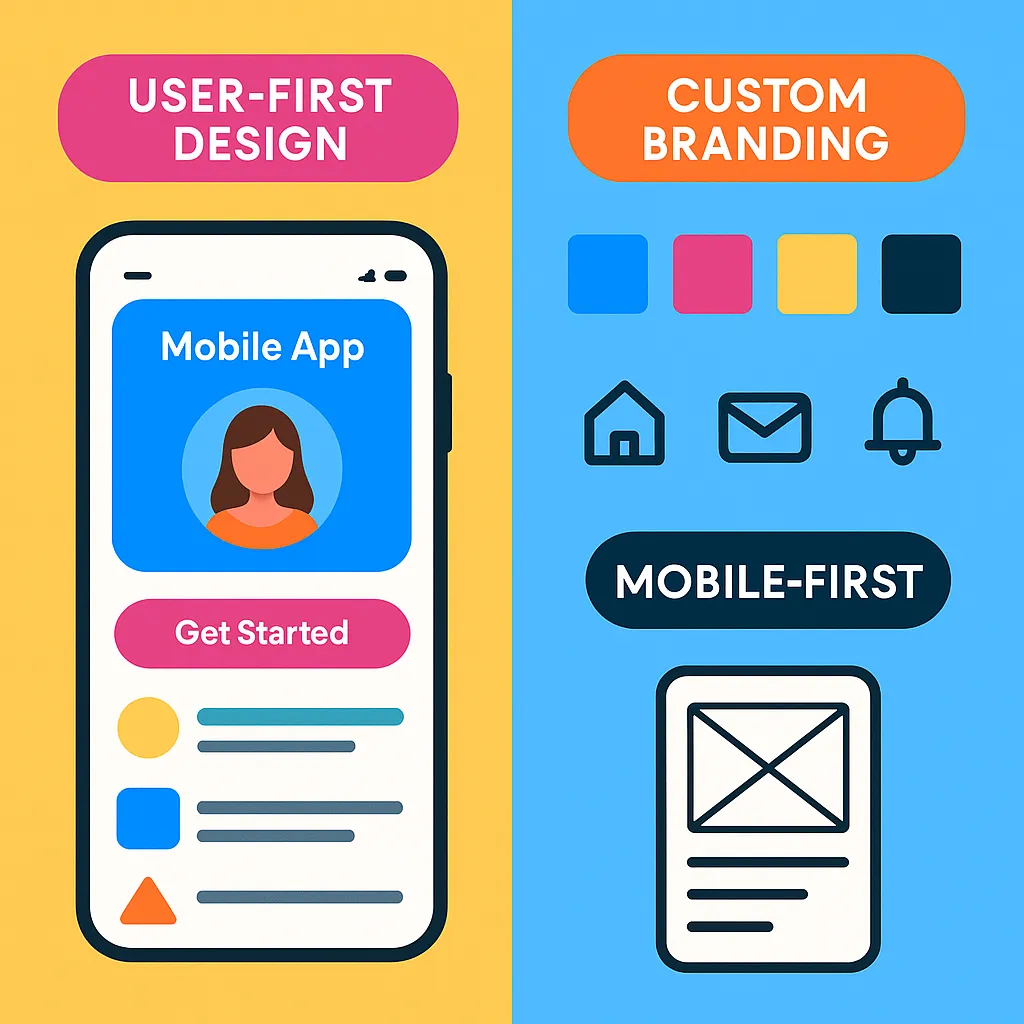
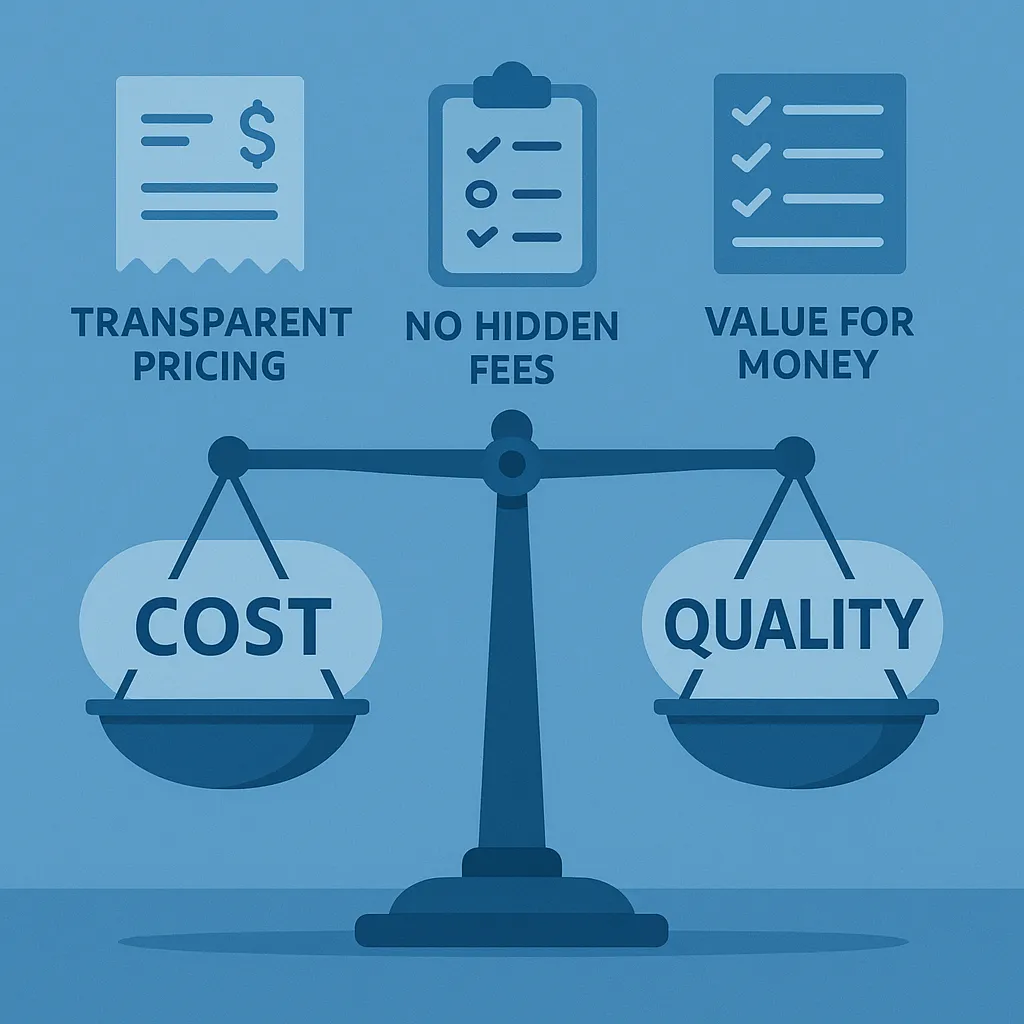
Pricing Models & Quality
Pricing is important — but chasing the cheapest quote often leads to regret. Instead, focus on value for money.
Here’s how to evaluate wisely:
What’s included?: Is UI/UX design, QA testing, and deployment part of the quote?
Detailed breakdowns: Get estimates that list each feature and its timeline — not vague ballparks.
Long-term costs: Hosting, maintenance, and feature upgrades add up. Factor them in now.
Avoid red flags: Unrealistically low pricing usually means hidden costs or poor code quality.
The best developer won’t just give you a low bid — they’ll give you clarity, confidence, and a path to ROI.
Choose the Right Development Partner
Even with a well-thought-out business model, building a food delivery platform like Grubhub is no small task — you need a development team that understands both the technical and operational challenges of the industry. Partnering with the right Grubhub clone developer can save you from costly mistakes, accelerate your time-to-market, and set your app up for long-term success.
Look for a partner that offers:
Demonstrated expertise in on-demand food delivery and logistics platforms
A portfolio featuring scalable, real-time apps with restaurant and driver dashboards
End-to-end services — from concept validation to deployment and post-launch support
If you’re serious about launching a high-performance Grubhub clone with modern tech, user-first design, and scalable infrastructure, Miracuves offers exactly that tailored clone solutions built for growth and reliability.
Conclusion
Hiring the best Dunzo clone development company isn’t just about technical know-how — it’s about finding a partner who gets your vision, understands your market, and builds for long-term growth. A team with proven domain experience, a scalable tech stack, thoughtful UI/UX, transparent workflows, and smart pricing will help you launch faster, scale confidently, and avoid costly setbacks. Take your time, ask the right questions, and choose a developer who aligns with your business strategy and not just your specs.
Frequently Asked Questions
Experience in food delivery platforms, real-time tech expertise, and a strong design portfolio are key.
While traditional development can cost $15,000 to $50,000, Miracuves offers a ready-made Grubhub Clone Solution for just $2,899, fully set up and delivered within 3–9 days.
Absolutely. Most providers offer full white-labeling and feature flexibility.
Traditionally, MVP development can take 6–10 weeks, and full-feature builds up to 14–16 weeks.
With Miracuves’ ready-made clone solution, you can launch your complete app in just 3–9 days — setup, customization, and deployment included.
Good ones do. Ensure your contract includes post-launch support for bug fixes and updates.



